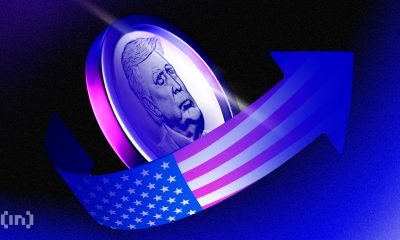Regulation
Mark Zuckerberg And Spotify CEO Push For Open-Source AI In EU

AI News: Meta CEO, Mark Zuckerberg, and Spotify CEO, Daniel Ek, are advocating for Europe to adopt open-source AI to remain competitive in the global tech industry. In a joint statement, the two leaders emphasize that open-source AI, which permits developers to access and modify AI models freely, is essential for fostering innovation and economic growth across the continent.
Mark Zuckerberg and Spotify CEO Push for Open-Source AI
In the latest AI news, Zuckerberg and Ek argue that open-source AI has the potential to level the playing field by giving a broader range of developers and organizations access to cutting-edge technology. This openness, they assert, is vital for ensuring that power is not concentrated in the hands of a few large corporations.
By making artificial intelligence technology more accessible, they believe that open-source AI can help develop new ideas and businesses across Europe.
If you’re building with AI in Europe, you know just how important this discussion is right now. Open source AI creates more opportunities for all and we hope that the EU doesn’t limit the possibilities for new innovation for European consumers and businesses.…
— Ahmad Al-Dahle (@Ahmad_Al_Dahle) August 23, 2024
The CEOs highlighted that the internet largely runs on open-source technologies, suggesting that the same approach could lead to significant advancements in artificial intelligence. With Europe boasting more open-source developers than the United States, the region is uniquely positioned to exploit this trend. However, they caution that Europe’s current regulatory environment is a major obstacle to realizing this potential.
Regulatory Challenges in Europe
Mark Zuckerberg and Ek expressed concern that Europe’s fragmented regulatory landscape hinders the continent’s innovation. They pointed out that the overlapping and inconsistent regulations across EU member states create uncertainty for companies developing and deploying AI technologies.
They argue that this could lead to Europe falling behind other regions with more streamlined and coherent regulatory frameworks.
In addition, the CEOs cited the EU’s General Data Protection Regulation (GDPR) as an example of regulatory complexity stifling innovation. While the GDPR was designed to harmonize data use across Europe, its uneven application has led to delays and uncertainty, particularly for companies like Meta that are developing artificial intelligence models based on publicly available data. This regulatory uncertainty, they warn, could prevent European businesses and researchers from accessing the latest artificial intelligence.
Need for Simplified Regulations
Subsequently, Zuckerberg and Ek call for a simplified and harmonized regulatory approach across Europe. They argue that clearer policies and more consistent enforcement would enable European companies and developers to capitalize on the opportunities presented by open-source AI fully. Without such changes, they warn, Europe risks missing out on the next wave of technological innovation.
Apart from the AI news, Elon Musk’s platform, X, was also recently at the center of controversy in Europe. Discussions around regulatory compliance could have led to its shutdown in the region. This is another example of how complex regulations could hinder access to technological advancements.
Consequently, the two CEOs conclude by stressing that open-source AI is crucial for ensuring that the benefits of artificial intelligence are broadly distributed. They hope that European regulators will recognize the importance of this technology and create an environment that supports its development and adoption.
Disclaimer: The presented content may include the personal opinion of the author and is subject to market condition. Do your market research before investing in cryptocurrencies. The author or the publication does not hold any responsibility for your personal financial loss.
Regulation
Japan Set To Classify Cryptocurrencies As Financial Products, Here’s All

Cryptocurrency investors in Japan are bracing for impact following a plan to reclassify digital assets as financial products. While the plan has elicited excitement from cryptocurrency enthusiasts in the Far East, the ambitious plan will have to scale several legislative hurdles.
Japan Targets Reclassification Of Cryptocurrencies As Financial Products
According to a report by Nikkei, Japan’s Financial Services Agency (FSA) is inching toward classifying cryptocurrencies as financial products. Per the report, the FSA intends to achieve the reclassification via an amendment to the Financial Instruments and Exchange Act.
Currently, digital assets in Japan are considered crypto assets conferred with property rights and seen as payment means. Under the FSA’s plans, cryptocurrencies in Japan will be treated as financial products in the same manner as traditional financial products.
The FSA says it will adopt a slow and steady approach toward the reclassification, carrying out “a private expert study group” to test the waters. If everything goes according to plan, the FSA will submit the amended bill to Parliament in early 2026.
The classification of cryptocurrencies as financial products will have far-reaching consequences for the local ecosystem. Experts say treating cryptocurrencies as financial products will bring Japan closer to a crypto ETF launch amid a changing regulatory landscape.
Furthermore, the move may lower current cryptocurrency taxation for local investors since existing capital market rules will apply to the asset class.
A Fresh Bill For Crypto Insider Trading Is Underway
Apart from the reclassification, the FSA disclosed plans for new legislation against insider trading. The move flows treating cryptocurrencies as financial products and will strengthen existing investor protection rules.
“It is a direction to establish a new insider trading regulation that prohibits trading based on unpublished internal information,” said the FSA. “We will develop laws to prevent unfair transactions.”
However, Japan’s cryptocurrency scene is heating up to a boil, driven by local and international players. Last week, stablecoin issuer Circle secured approval from the FSA for USDC with top exchanges set to list the stablecoin.
Japan’s Metaplanet has tapped Eric Trump to join its Strategic Board of Advisors as it continues to load up Bitcoin.
Disclaimer: The presented content may include the personal opinion of the author and is subject to market condition. Do your market research before investing in cryptocurrencies. The author or the publication does not hold any responsibility for your personal financial loss.
Regulation
Kentucky Governor Signs Off On ‘Bitcoin Rights’ Bill, Strengthening Crypto Protections


In what is being dubbed a major development in the crypto regulation space, the Governor of the US state of Kentucky, Andy Beshear, has signed the ‘Bitcoin Rights’ bill into law. The law promises to safeguard protections for Bitcoin (BTC) users.
Bitcoin Rights Bill Comes Into Effect
Crypto regulations continue to evolve under pro-crypto US President Donald Trump’s administration. In the latest development, Kentucky has become the newest state to enshrine protections for digital asset users.
In an X post published on March 24, crypto advocacy group Satoshi Action Fund announced that Governor Beshear had signed the much-anticipated Bitcoin Rights bill into law. The post stated:
The right to self-custody, run a node, and use of digital assets is now protected for millions of Americans without fear of discrimination.
The bill was first introduced to the Kentucky House by Rep. Adam Bowling on February 19. According to the bill’s description, it seeks to safeguard users’ rights to use digital assets and self-custody wallets. Additionally, it aims to prohibit local zoning changes that discriminate against crypto mining operations.
The legislation outlines guidelines for running a digital asset node and excludes digital asset mining from money transmitter license requirements. It also clarifies that crypto mining or staking is not considered an offer or sale of securities.
On February 28, the bill passed Kentucky’s House of Representatives with a unanimous vote of all 91 representatives in favor. It later passed the Kentucky Senate on March 13, receiving backing from all 37 senators.
Kentucky’s proactive stance toward cryptocurrencies isn’t new. Earlier this year, the state became the 16th US state to introduce legislation seeking to create a Bitcoin strategic reserve.
Meanwhile, neighboring state Arizona is also joining the crypto movement. A recent X post by Bitcoin Laws revealed that Arizona’s House Rules Committee has passed two Bitcoin reserve bills — SB1373 and SB1025. These bills will now head to a full floor vote.
Renewed Optimism Under Trump Administration
Following Trump’s victory in the November presidential election, cryptocurrency regulations in the US are evolving rapidly, with many states introducing legislation aimed at strengthening their digital asset ecosystems and attracting crypto businesses.
Positive changes in crypto regulations are encouraging industry businesses to expand. For instance, leading crypto trading platform Coinbase recently announced plans to hire 1,000 employees in the US.
The Trump administration has also witnessed several lawsuits being dropped against major crypto entities, including Kraken, Coinbase, Gemini, and others. At press time, Bitcoin trades at $87,399, down 0.2% in the past 24 hours.

Featured Image from Unsplash.com, chart from TradingView.com

Editorial Process for bitcoinist is centered on delivering thoroughly researched, accurate, and unbiased content. We uphold strict sourcing standards, and each page undergoes diligent review by our team of top technology experts and seasoned editors. This process ensures the integrity, relevance, and value of our content for our readers.
Regulation
US SEC Drops Charges Against Hawk Tuah Girl Hailey Welch

Hawk Tuah girl Hailey Welch, known for her association with the controversial $HAWK token, has been cleared of any wrongdoing after a lengthy investigation by the U.S. Securities and Exchange Commission (SEC). The SEC has decided not to press charges against Welch in connection with the rapid rise and subsequent collapse of the meme-based cryptocurrency.
US SEC Investigation Into Hawk Tuah Girl Concludes Without Charges
The SEC had launched an investigation into the $HAWK token after its dramatic price drop. The token, which was linked to Welch’s viral persona, initially saw a market cap surge to $490 million before crashing by over 90%. Investors who were impacted by the crash filed a lawsuit against those behind the project, alleging that the coin had been promoted and sold without proper registration.
Hawk Tuah girl Hailey Welch, who cooperated fully with the investigation, expressed relief after the SEC’s decision. “For the past few months, I’ve been cooperating with all the authorities and attorneys, and finally, that work is complete,” Welch told TMZ.
Her attorney, James Sallah, confirmed that the SEC had closed the case without any findings against her, adding that there would be no monetary sanctions or restrictions on Welch’s future involvement in cryptocurrency or securities.
This Is A Developing News, Please Check Back For More
Disclaimer: The presented content may include the personal opinion of the author and is subject to market condition. Do your market research before investing in cryptocurrencies. The author or the publication does not hold any responsibility for your personal financial loss.
-

 Ethereum23 hours ago
Ethereum23 hours agoWhales Accumulate 470,000 Ethereum In One Week – Bullish Momentum Ahead?
-

 Regulation20 hours ago
Regulation20 hours agoJapan Set To Classify Cryptocurrencies As Financial Products, Here’s All
-

 Altcoin24 hours ago
Altcoin24 hours agoAnalyst Reveals Why The XRP Price Can Hit ATH In The Next 90 To 120 Days
-

 Market23 hours ago
Market23 hours ago3 Token Unlocks for April: Parcl, deBridge, Scroll
-

 Market20 hours ago
Market20 hours agoTop 3 Made in USA Coins to Watch This Week
-

 Market19 hours ago
Market19 hours agoSolana (SOL) Price Risks Dip Below $110 as Bears Gain Control





















✓ Share: